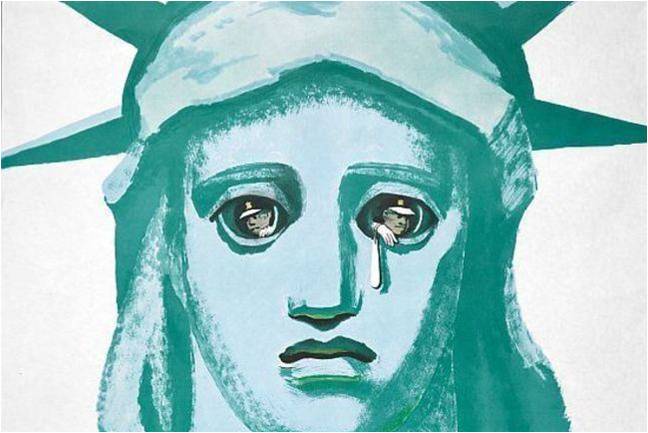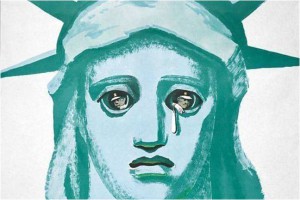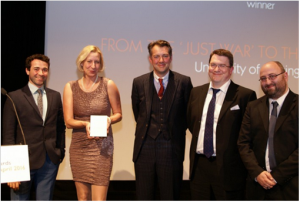
May 11, 2016, by Tony Hong
Propaganda and Ideology in Everyday Life: Award-winning Open Course Returns!
Prof Mathew Humphrey, Head of School of Politics and School of Politics and International Relations, University of Nottingham, Lead Educator, Propaganda and Ideology in Everyday Life.
The Massive Open Online Course (MOOC) ‘Ideology and Propaganda in Everyday Life’ returns for its second run on Monday May 16th.
The course is run in partnership between the University of Nottingham and The British Library, taking advantage of the extensive collections held by the British Library relating to politics and cultural history. In the course, we explore the connections between political ideas and beliefs and the experiences of citizens and communities as they go about their daily lives. Recent scholarship has emphasised the need to understand how political ideas ‘flow’ through societies, in ways that are often complex and contested. We look to move beyond views that see propaganda as simply a ‘top-down’ mode of indoctrination, mainly associated with totalitarian regimes such as National Socialism or Communism. Similarly, we look to expand our understanding of ideology, beyond the view that ideological beliefs must necessarily be ‘false’ or rigid and doctrinaire.
Through a combination of films, presentations, readings, and discussions, we bring together leading academics from around the world to explore the myriad ways in which propaganda and ideology not only impact upon the everyday lives of citizens, but how they are co-produced and consumed in complex interactions between governments, corporations, think-tanks, communities, and private individuals. Using this lens we explore five major themes, freedom, justice, belonging and community, belonging and territory, and consumption. Our premise is that ideology and propaganda are entirely ordinary phenomena, which can be associated with almost any and every sphere of human activity. Learners are asked to reflect upon how propaganda and ideology have come to take the forms that they do, how they operate, and what impact they have on citizens’ lives. Object such as maps, children’s toys, urban architecture, photographs, and recipe books are used to explore how commonplace objects and activities can be implicated in the development and transmission of ideology and propaganda. We aim to foster an entertaining and informed debate around themes that affect the lived experiences of everyone.
We are delighted that one of the films used in the course, ‘From the “Just War” to the “Unjust Peace”’, directed by Alec Millward and featuring Professor Maiken Umbach from the Department of History at the University of Nottingham, has recently won a 2016 ‘Learning on Screen Award’. The film uses the images of photographer Lee Miller to ask learners to reflect upon the role of violence in questions of justice and injustice.
When we ran the course in 2015 it attracted 12,000 joiners and, by the end of the course, we had over 24,000 discussion comments. Those of us who were the ‘educators’ on the course were also students, for we learned a huge amount through the interactions with leaners on the course from over twenty different countries. In the intervening year we have upgraded several of the films and presentations, and we hope that we will be even busier this time!
You can register for the course here.
Mathew Humphrey, Lead Educator, Propaganda and Ideology in Everyday Life
No comments yet, fill out a comment to be the first



Leave a Reply